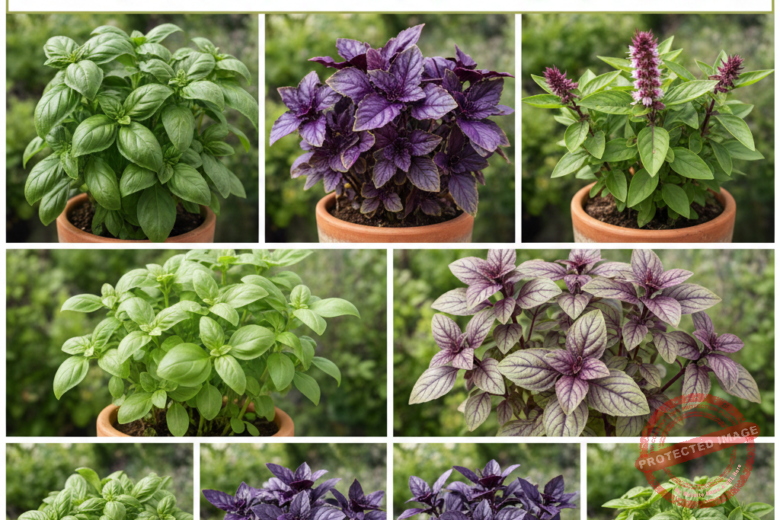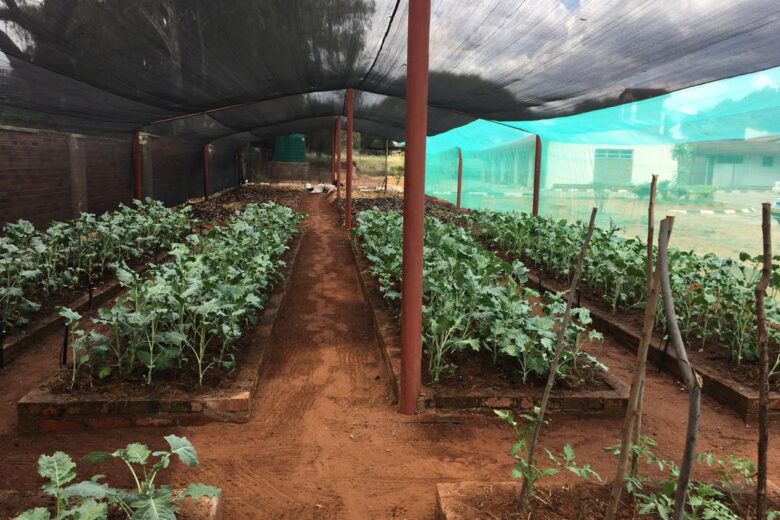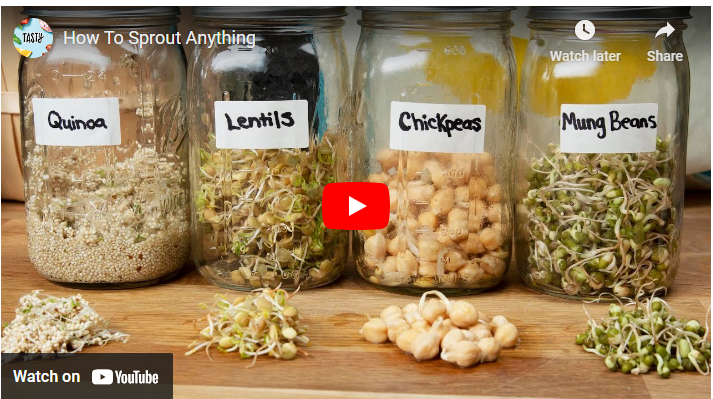Are you looking to delve into the world of agriculture in Louisiana? The state presents a diverse range of profitable crop options that can help you achieve success.
From traditional staples like soybeans and corn to specialty crops like sugarcane and sweet potatoes, Louisiana’s fertile lands offer abundant opportunities.
High-demand crops such as cotton, rice, and crawfish ensure a steady market and potential for great returns.
By harnessing modern farming techniques, leveraging favorable climatic conditions, and staying abreast of market trends, you can unlock the potential of these 12 profitable crops and reap the rewards in Louisiana’s thriving agricultural landscape.
12 Most Profitable Crops in Louisiana
Farming in Louisiana is characterized by a rich agricultural heritage. The state’s warm climate, fertile soils, and abundant water resources provide ideal conditions for successful crop production.
Farmers employ advanced cultivation techniques, such as precision farming and irrigation systems, to optimize yields and ensure profitability.
Market demand for staples like rice and sugarcane, as well as versatile crops like soybeans and sweet potatoes, drives the profitability of farming in Louisiana.
This dynamic industry offers agricultural entrepreneurs an opportunity to thrive and contribute to the state’s agricultural economy.
However, we are focusing on the 12 most profitable crops in Louisiana which have been outlined and discussed below.
- Corn
- Rice
- Wheat
- Sweet potatoes
- Cotton
- Soybeans
- Sweet corn
- Sugarcane
- Potatoes
- Crawfish
- Pecan
- Peanuts
#1. Corn
Corn holds a prominent position among the most profitable crops in Louisiana. The state’s rich agricultural landscape and favorable climate provide an ideal environment for corn cultivation.
Farmers in Louisiana primarily grow corn for multiple purposes. It serves as a valuable source of livestock feed, meeting the high demand for quality animal nutrition in the region.
Moreover, corn plays a vital role in ethanol production, contributing to the renewable energy sector.
Louisiana’s corn harvest also supplies the food industry, finding its way into various food products.
With its versatile applications and consistent market demand, corn farming remains a lucrative venture for agricultural entrepreneurs in Louisiana.
#2. Rice
Rice stands as another highly profitable crop in Louisiana, thanks to the state’s ideal agricultural conditions.
The water-rich environment, combined with the warm climate, creates a perfect setting for successful rice cultivation.
Louisiana’s flat topography allows for efficient irrigation and water management, crucial for rice production. This crop caters to both domestic and international markets, providing a reliable source of income for farmers.
With a steady demand for rice products globally, including rice for consumption and industrial uses, Louisiana farmers enjoy a lucrative market for their harvest.
The profitability of rice farming in Louisiana remains a testament to the state’s agricultural prowess and its ability to capitalize on favorable growing conditions.
#3. Wheat
While Louisiana is primarily known for its rice and sugarcane production, wheat also holds significant profitability in the state.
Wheat farming in Louisiana benefits from the region’s favorable climate and rich soil composition. Farmers cultivate both winter and spring wheat varieties, allowing for year-round production.
The harvested wheat finds application in various industries, including flour milling, baking, and livestock feed.
Louisiana’s proximity to major transportation routes facilitates efficient distribution and access to broader markets.
With the right farming techniques, quality control, and market understanding, wheat farming in Louisiana presents a lucrative opportunity for agricultural entrepreneurs seeking diversification and sustainable profits.
#4. Sweet potatoes
Sweet potatoes have emerged as a highly profitable crop in Louisiana, capturing the attention of both consumers and agricultural entrepreneurs.
The state’s favorable climate and fertile soil provide optimal conditions for sweet potato cultivation. Besides being a staple food, sweet potatoes have gained popularity as a versatile ingredient for value-added products.
The demand for sweet potato chips, fries, and other processed products has surged, opening new avenues for profit.
Sweet potatoes are rich in nutrients and are embraced by health-conscious consumers.
#5. Cotton
Cotton continues to be a highly profitable crop in Louisiana, with the state’s cotton industry maintaining its strength and significance.
The demand for cotton fiber, textiles, and cottonseed oil fuels the success of this crop. Louisiana’s climate and fertile soils provide optimal conditions for cotton cultivation, resulting in high-quality fibers.
The cotton industry in the state benefits from a well-established market network and infrastructure, ensuring a steady demand for its products.
Cotton farming offers lucrative opportunities for farmers to capitalize on the versatile applications of this crop, contributing to the textile and oil industries while reaping substantial profits in Louisiana’s agricultural landscape.
#6. Soybeans
Soybeans hold a prominent position among the profitable crops in Louisiana, thanks to the state’s warm climate and fertile soil.
These ideal agricultural conditions make Louisiana a prime location for soybean farming. The demand for soybean products, both domestically and internationally, further contributes to its profitability.
Soybeans serve as a valuable source of protein and oil, finding applications in various industries such as food, feed, and biodiesel production.
#7. Sweet corn
Sweet corn is a profitable crop in Louisiana, capturing the taste buds and wallets of consumers. Known for its tender kernels and sweet flavor, sweet corn is a popular choice for both fresh consumption and processing.
Louisiana’s warm climate and fertile soils provide optimal growing conditions for sweet corn cultivation. The crop enjoys a steady demand, particularly during the summer months and during local events and festivals.
Value-added products like canned and frozen sweet corn further enhance its profitability.
#8. Sugarcane
Sugarcane holds a prominent position as a highly profitable crop in Louisiana, solidifying the state’s reputation as a key player in sugarcane production.
Louisiana’s warm climate, ample rainfall, and fertile soils create ideal conditions for sugarcane cultivation.
The crop serves as a major contributor to the state’s economy, generating substantial revenue and employment opportunities.
Louisiana’s sugarcane industry supplies not only the domestic market but also contributes to the global sugar market.
Sugarcane byproducts, such as molasses and bagasse, find applications in various industries, including rum production and energy generation.
The profitability of sugarcane farming in Louisiana underscores its importance and viability as a lucrative agricultural venture.
#9. Potatoes
Potatoes have emerged as a profitable crop in Louisiana, presenting agricultural entrepreneurs with a lucrative opportunity.
The state’s favorable climate and fertile soils provide optimal conditions for potato cultivation. Louisiana’s potato industry caters to both fresh consumption and processing needs, offering a diverse range of potato varieties.
The demand for potatoes remains strong, with the crop finding applications in various culinary endeavors and processed products.
From french fries and potato chips to mashed potatoes and soups, the versatility of potatoes drives their profitability.
#10. Crawfish
Crawfish farming has emerged as a highly profitable crop in Louisiana, capitalizing on the state’s unique wetland environment.
Louisiana’s expansive wetlands provide an ideal habitat for crawfish, leading to a thriving industry.
The deep-rooted love for crawfish dishes in Louisiana, including popular dishes like crawfish boils, drives the demand and profitability of this crop.
Farmers who engage in crawfish farming can benefit from high profits by meeting the local and regional demand for these delicacies.
#11. Pecan
Pecans have become a highly profitable crop in Louisiana, driven by the increasing demand for this nutritious and versatile nut.
Louisiana’s favorable climate and fertile soils provide excellent conditions for pecan orchards to thrive. The rising popularity of pecans as a healthy snack and their use in various culinary applications have created a lucrative market.
Louisiana’s pecan farmers can benefit from this growing demand by cultivating high-quality pecans and leveraging effective marketing strategies.
With proper orchard management and adherence to quality standards, pecan farming in Louisiana presents a profitable and sustainable venture for agricultural entrepreneurs seeking to capitalize on this nut’s rising popularity.
#12. Peanuts
Peanuts have emerged as a profitable crop in Louisiana, capitalizing on the state’s sandy soils. Louisiana’s unique soil composition, particularly its sandy texture, provides an optimal environment for peanut cultivation.
The crop’s deep-rooted nature and tolerance for drought make it well-suited for the region. Peanuts are in high demand for various purposes, including peanut butter production, snack foods, and culinary uses.
Louisiana’s peanut farmers can leverage these market opportunities and benefit from the profitability of peanut farming.
Cultivation Techniques for Profitable Crops in California
Cultivating profitable crops in California requires the implementation of effective cultivation techniques tailored to the region’s unique climate and soil conditions.
Maximizing productivity and yield requires farmers to consider factors such as water management, irrigation systems, pest and disease control, and crop rotation.
Techniques like precision farming, hydroponics, and drip irrigation can optimize resource utilization and minimize environmental impact.
Adopting organic farming practices can enhance marketability and sustainability.
Staying updated on research and advancements in crop cultivation techniques specific to California enables farmers to harness the full potential of their land and secure profitable yields.
Best Practices for Profitable Crops in California
To ensure the success of profitable crops in California, farmers should adhere to best practices that maximize productivity, efficiency, and profitability.
These practices encompass careful planning, soil health management, appropriate seed selection, optimal planting and harvesting times, effective fertilization, integrated pest management, and regular monitoring.
Embracing technology and innovation, such as precision agriculture tools and data-driven decision-making, can enhance crop quality and yield.
Collaborating with local agricultural extension services, attending workshops, and participating in farmer networks help farmers stay informed about the latest best practices.
By implementing these strategies, farmers can improve their crop yields and financial returns in California’s competitive agricultural market.
Risk Management Strategies for California Crop Farming
California crop farming is subject to various risks such as unpredictable weather patterns, water scarcity, market volatility, pests, and regulatory changes.
Implementing risk management strategies is crucial for ensuring the profitability and sustainability of agricultural operations.
Diversifying crops and markets, implementing irrigation systems with water-saving technologies, practicing proper pest and disease control measures, and using crop insurance can help mitigate risks.
Building strong relationships with buyers and suppliers, conducting thorough market research, and staying informed about consumer trends aid in managing market-related risks.
Staying updated on government policies and regulations and seeking professional advice from agricultural experts and financial advisors contribute to effective risk management.
By proactively identifying and addressing potential risks, farmers can safeguard their crops and financial viability in California’s dynamic agricultural landscape.
Top 10 Most Profitable Crops in Louisiana
- Soybeans
- Corn
- Sugarcane
- Rice
- Cotton
- Sweet Potatoes
- Crawfish
- Pecans
- Peanuts
- Blueberries
Most Profitable Crops in Louisiana PDF
For detailed information on the most profitable crops in Louisiana, a PDF document can be found on official government agriculture websites, agricultural research institutes, and extension services.
These PDFs provide comprehensive data, statistics, and insights into the profitability, cultivation techniques, market trends, and potential returns of various crops in Louisiana.
Most Profitable Crops in Louisiana 2020
The most profitable crops in Louisiana in 2020 may vary due to market conditions, weather patterns, and other factors.
However, based on historical trends, crops such as soybeans, corn, sugarcane, rice, and cotton have consistently ranked among the top profitable crops in the state.
Louisiana Top 3 Agricultural Products
The top three agricultural products in Louisiana are typically identified as rice, sugarcane, and soybeans.
These crops have significant economic importance and contribute substantially to the state’s agricultural sector.
What Crops Are Grown in Southern Louisiana
In southern Louisiana, crops commonly grown include rice, sugarcane, soybeans, corn, cotton, sweet potatoes, crawfish, and pecans.
The region’s warm climate, fertile soils, and access to water resources make it suitable for cultivating these crops.
What Are the 3 Most Common Crops Grown in Colorado
In Colorado, the three most common crops grown are wheat, corn, and hay. These crops are well-suited to the state’s diverse climate and are essential for livestock feed, food production, and forage.
Louisiana Top 10 Agricultural Commodities
The top 10 agricultural commodities in Louisiana include rice, sugarcane, soybeans, corn, cotton, cattle and calves, poultry and eggs, forestry products, aquaculture, and horticulture (including fruits, vegetables, and ornamental plants).
Louisiana Crop Production
Louisiana’s crop production encompasses a wide range of commodities, including rice, sugarcane, soybeans, corn, cotton, sweet potatoes, crawfish, pecans, peanuts, blueberries, and various other fruits and vegetables.
The state’s diverse agricultural landscape allows for the cultivation of a variety of crops, contributing to its agricultural success and economic growth.
What Crops Are Grown in Southern Louisiana
In southern Louisiana, a variety of crops are grown due to its favorable climate and fertile soils.
Common crops include rice, sugarcane, soybeans, corn, cotton, sweet potatoes, crawfish, pecans, and various fruits and vegetables.
The region’s agricultural activities thrive on its rich heritage of farming traditions and the abundance of natural resources available for cultivation.
Conclusion
Louisiana offers a diverse array of profitable crops that capitalize on its favorable climate, fertile soils, and market demand. From staples like rice and sugarcane to versatile crops like soybeans and sweet potatoes, agricultural entrepreneurs can tap into Louisiana’s agricultural potential and secure profitable returns in this dynamic industry.



